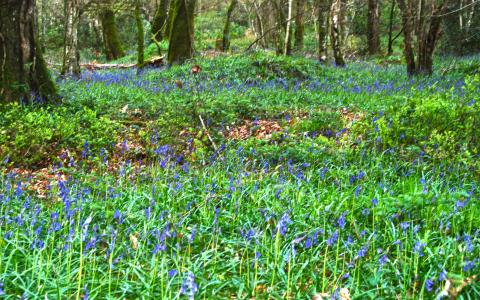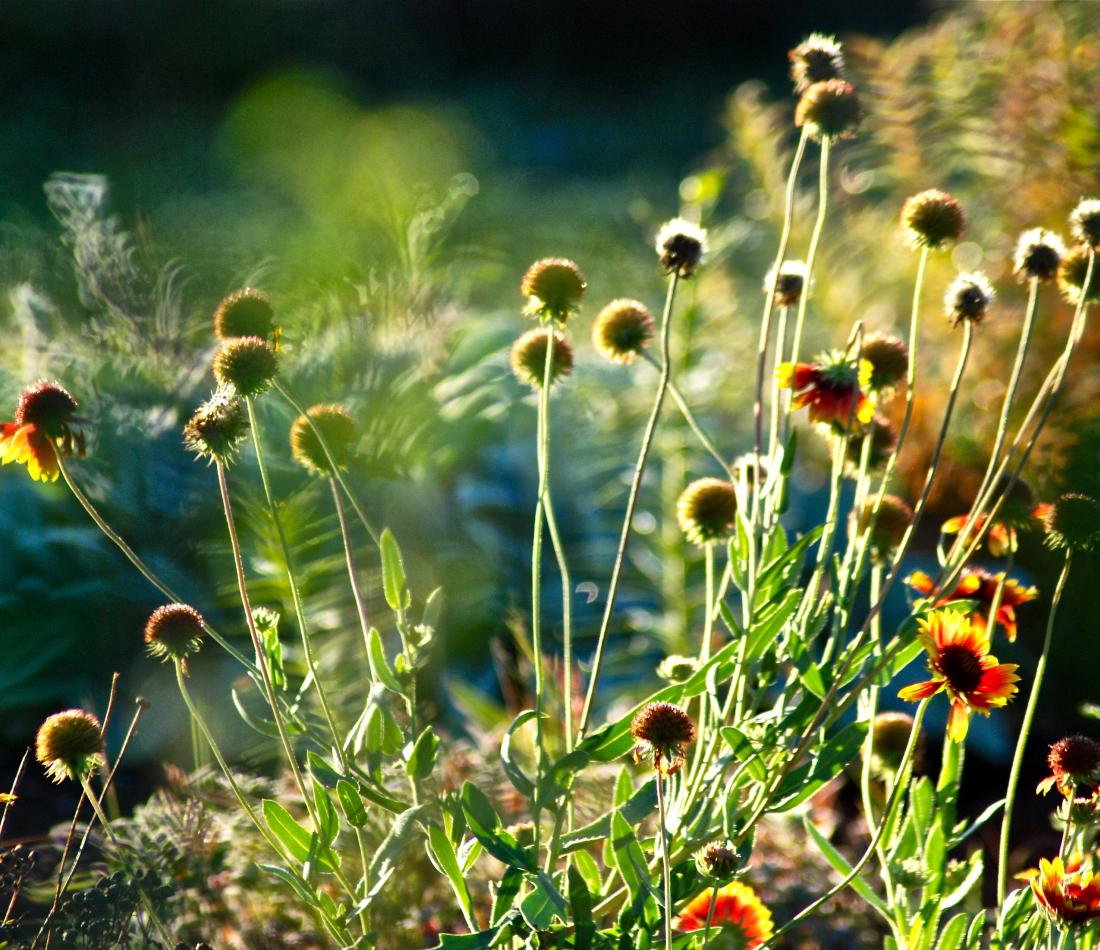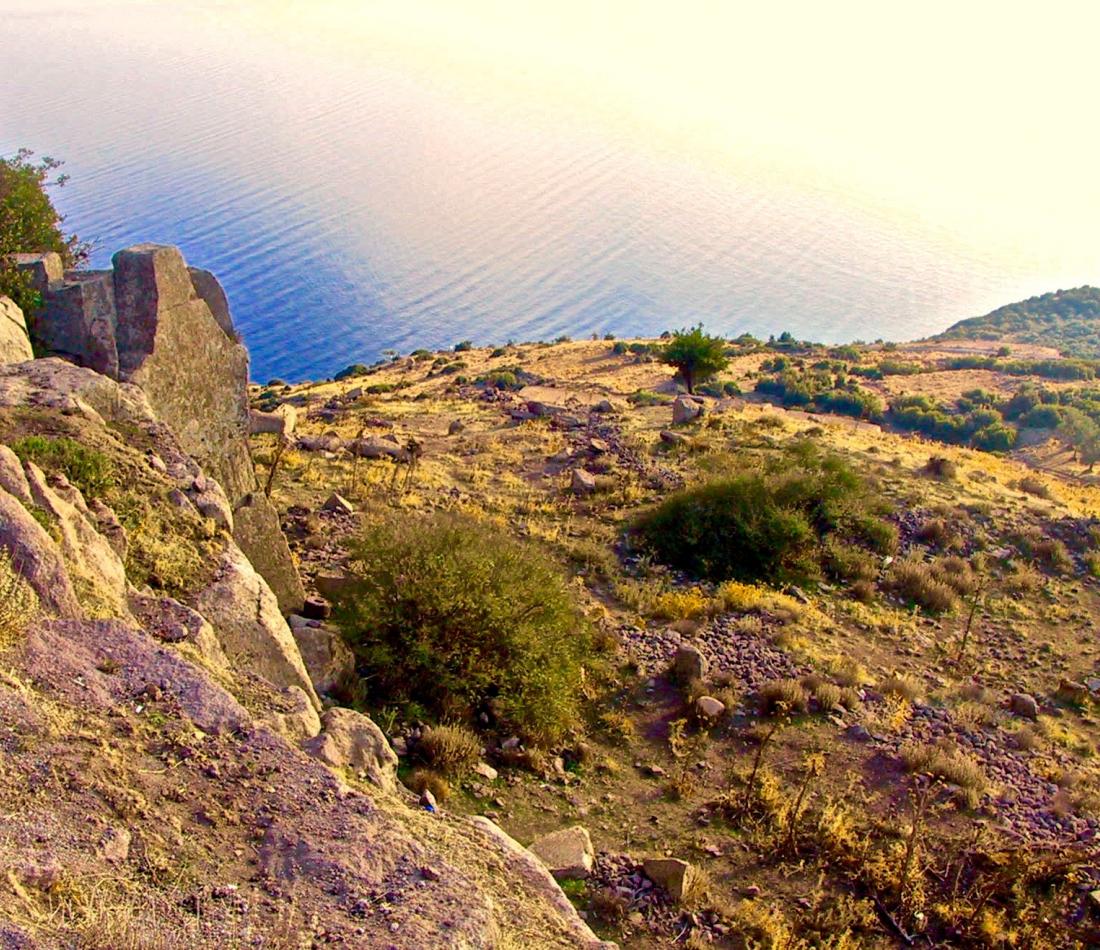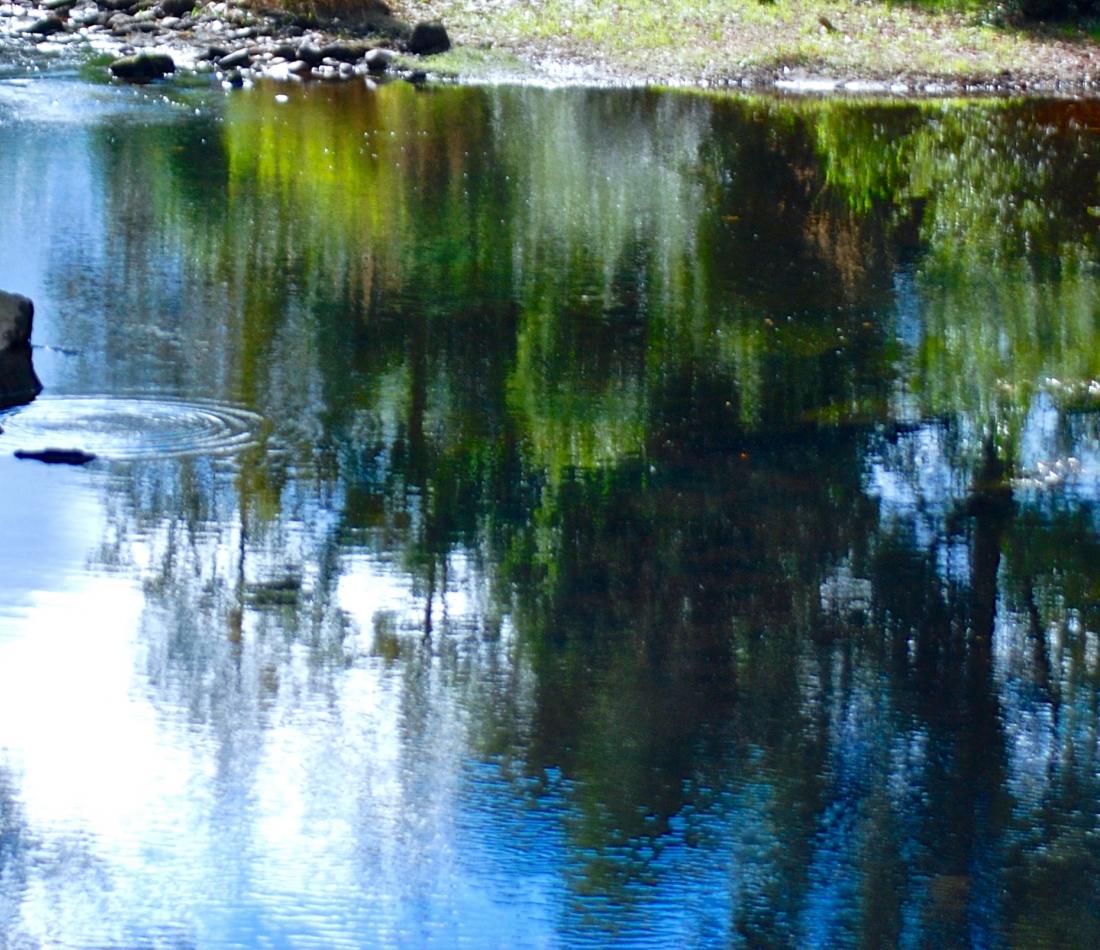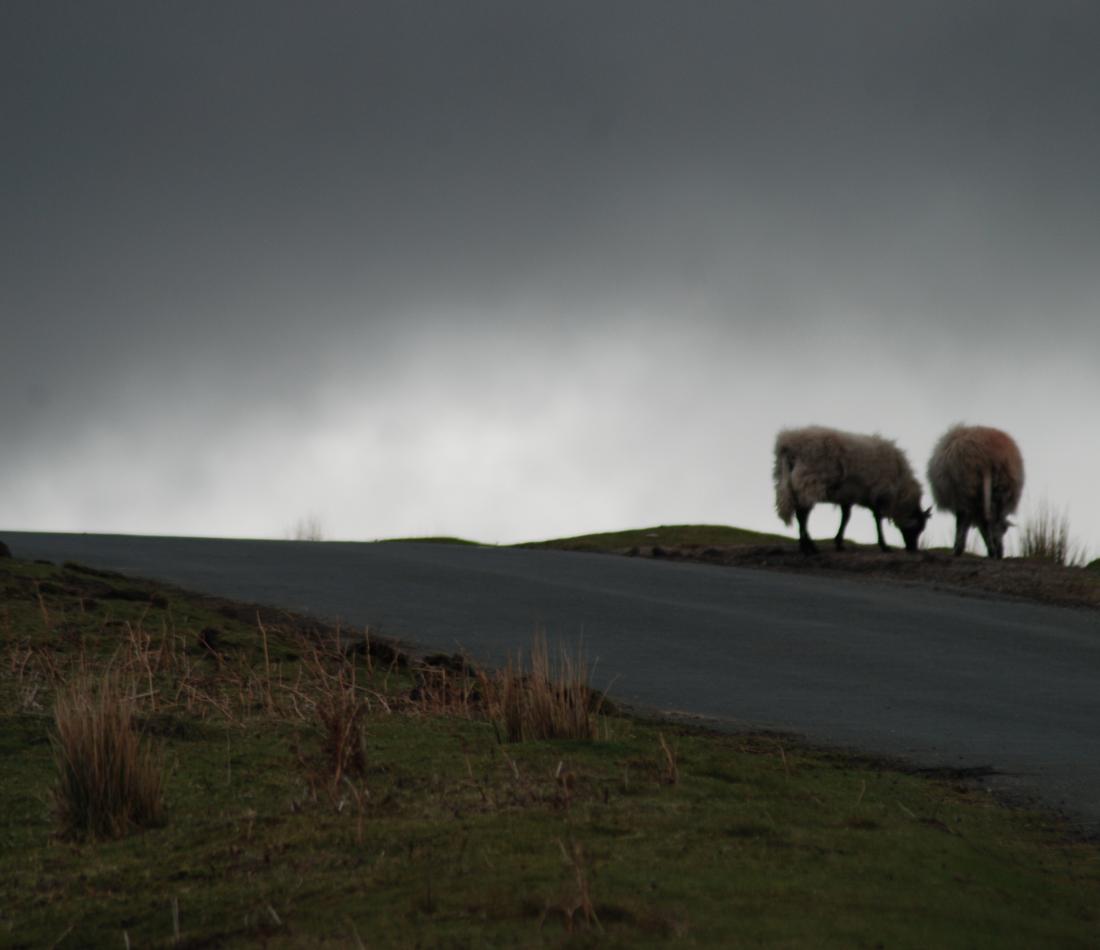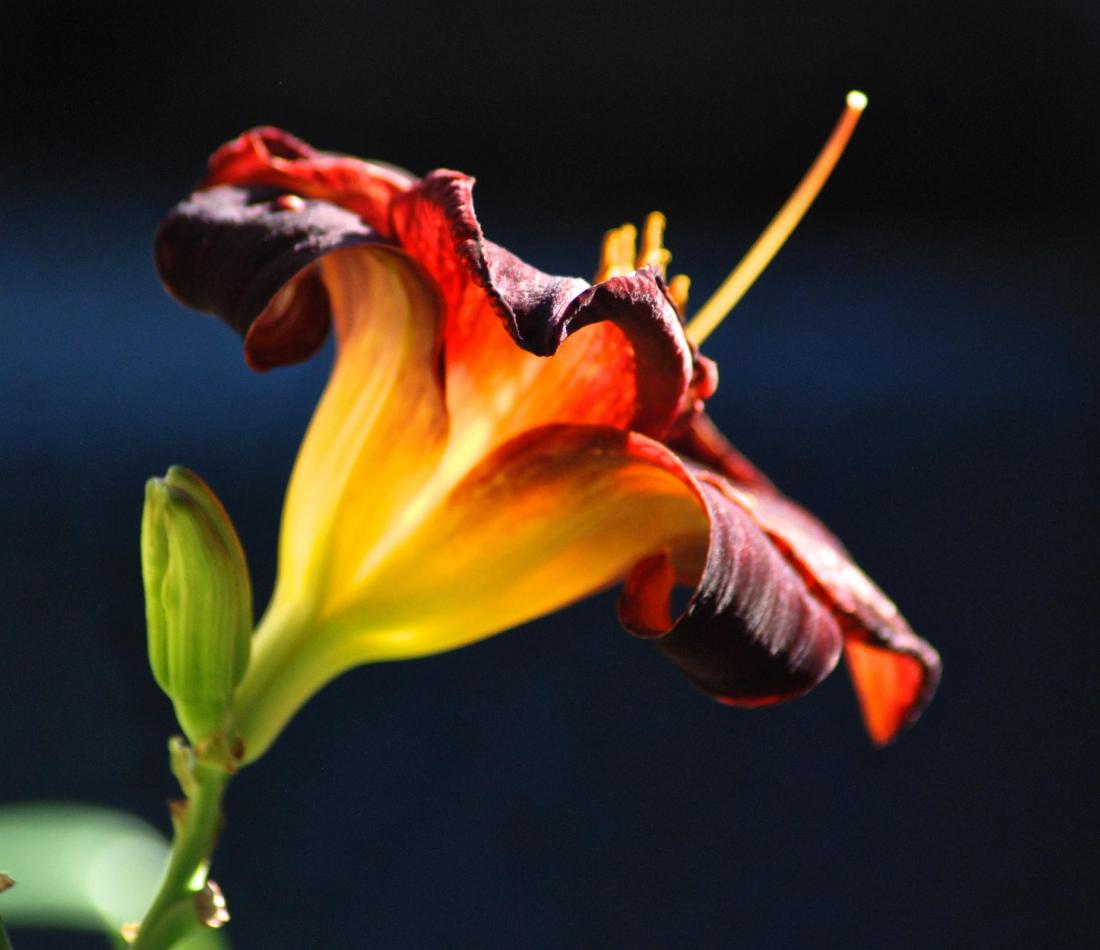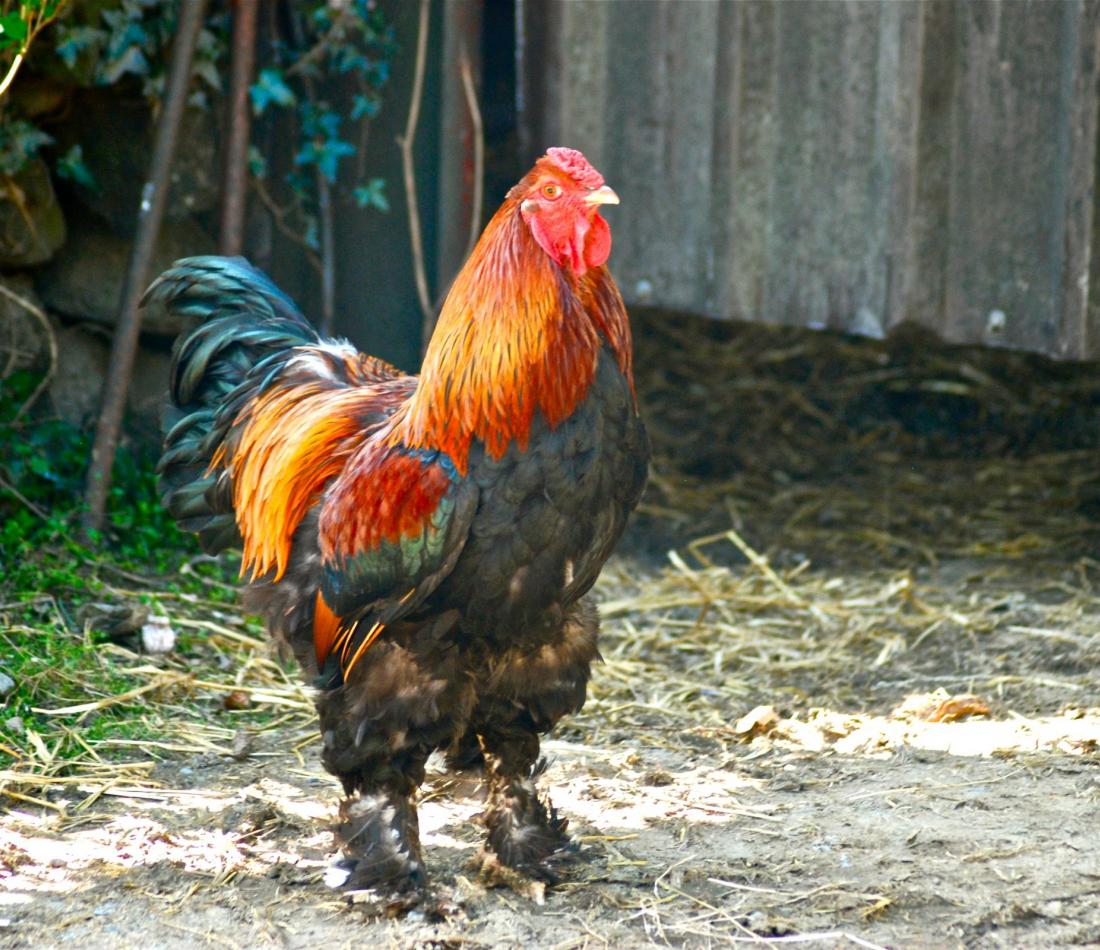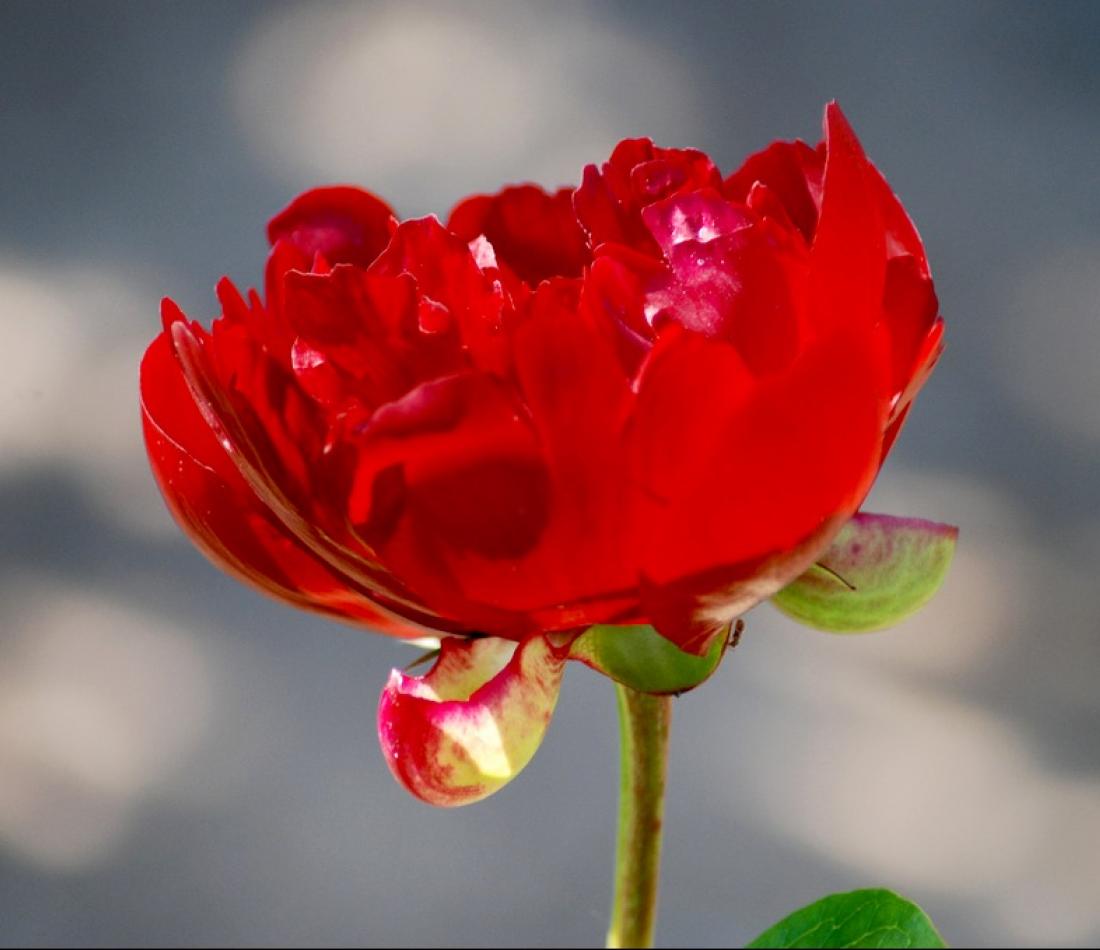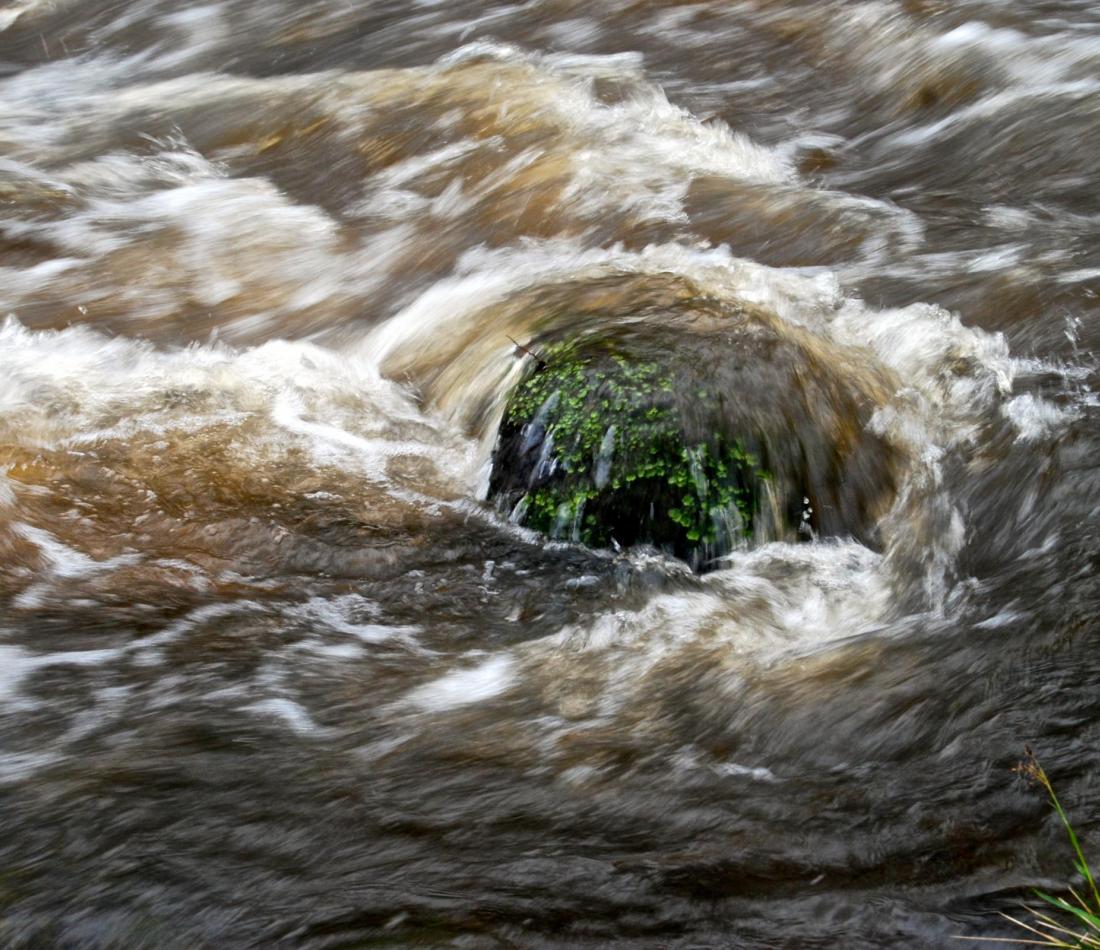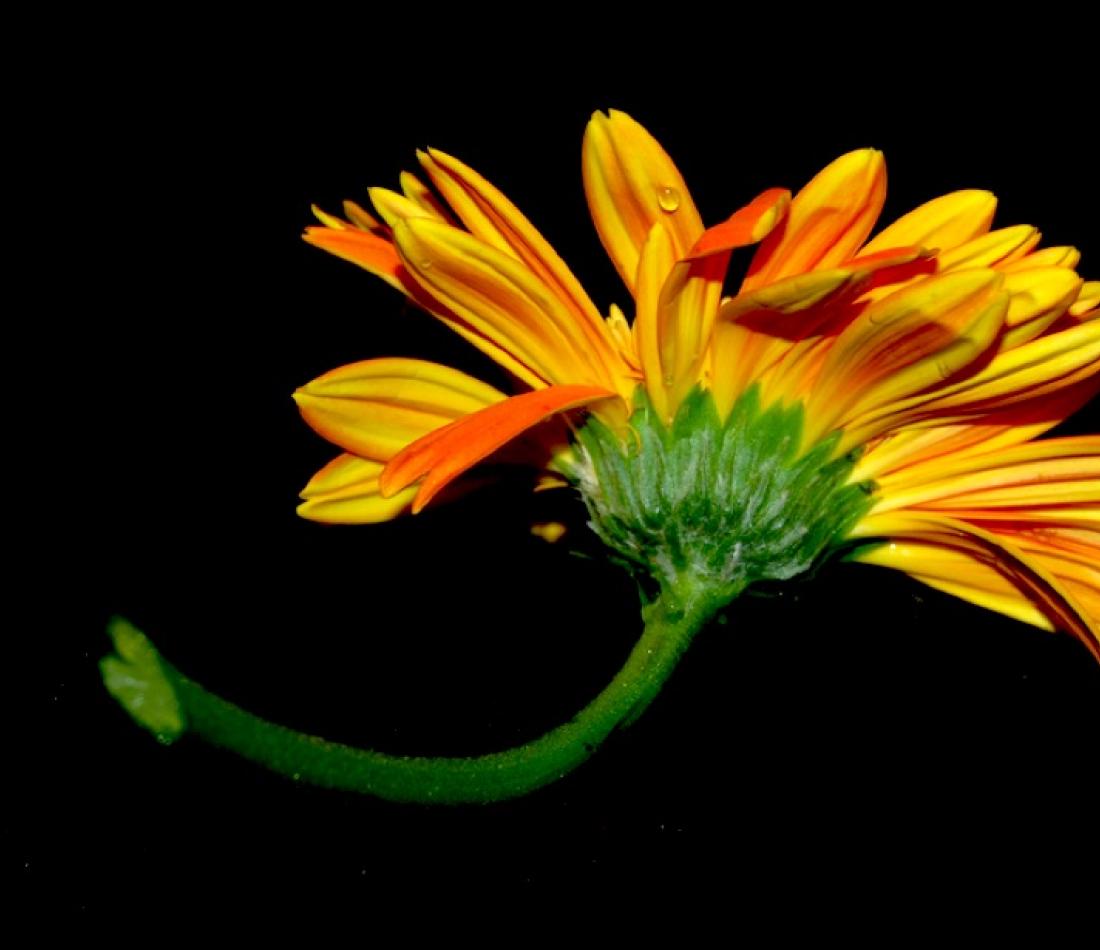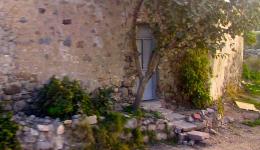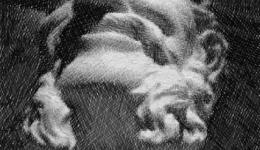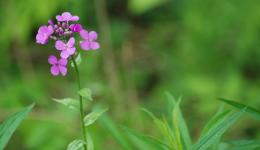Category:
(The script is similar to the above SoundCloud recording)
There are key thoughts here some of which I owe to the writings of Eugene Peterson. I have tried to say it in my own words, but there are some core ideas that have come from him, and I want to acknowledge that.
GOD MADE A WORLD AND PLANTED A GARDEN
We have been considering the Birth of the World – the Creation, as God spoke it into being. Eugene Peterson reminds us that Creation grounds us in time and space. It reminds us that this world is indeed our home.
I think of he wonder of a new baby. The week that our eldest son Andrew was born, I also witnessed an autopsy. Never before had I been so close to death & to new life. I had the privilege of being present at the birth of all three of our children. Come to think of it, Jane was there too. A Christian writer, marveling at the birth of his daughter – “I have climbed mountain peaks that gave me views of glaciated mountains in wave after wave of ranges, but none of those breathtaking vistas was comparable to seeing a baby enter the world. I have heard the most delicate and exquisite birdsong and some of the best musicians in the world, but no sounds rivaled the cries of that baby. Does anyone ever get used to this? I was captured by the wonder of life, the miracle of life, the mystery of life, the glory of life?”
We note that there are two Creation Stories in the Old Testament book of Genesis: the first about ‘time’ and the second about ‘place.’ If we are going to live as intended, we cannot do it abstractly or in general. We have to do it under the particular conditions in which God works, namely in the here and now. We have talked about our need to slow down, or sometines maybe to speed up, so we may learning as Jesus’ followers to be in synch with the rhythms of Creation. We've seen how the first creation has close analogy to music with its sequence of rhythms and repeated melodic themes. But the second creation account is more like a story. A plot begins to form and characters are introduced. Genesis 2 is structured by place –by geography. We have a postal code where God can find us.
Notice also that the second creation account also reverses the order: putting earth first, followed by heaven. All the action takes place in a single location on earth, a garden.
The first account is about the entire cosmos and everything in it. Like a Google earth map, the second account zooms in to this one place on earth. All living is local; everything God does in informing and interacting with us humans is done in a particular lace. Exactly where we are is the locale for forgiveness and love and justice.
We say again that, really, all God wants is our attention. It’s easy to miss what God is doing, especially if we wish we were elsewhere. Often we are restless, un-rooted, like tumble-weeds, with everything around us mere scenery or backdrop. Too easily, we miss our own lives and become mere spectators rather than participants in life. We have lost our sense of Place. Where we are, where we live, to what we are rooted no longer defines who we are. We have not yet discovered, perhaps, that there is an inescapable link between our place and our way of experiencing God.
There are Creation rhythms and Life rhythms. We thought of that recently, as kind of like having a trellis to enable our lives like plants to grow, to blossom, flower and produce fruit. That happens through our embracing those spiritual disciplines that help us do that. Prayer, reading Scripture, Sabbath, being part of the Community of Faith, the Sacraments help us do that. These disciplines become habits, and after awhile we don’t have to think about them. Thesediscipline-habits become as much a part of us as tying our shoes or knowing still, after all these years, how to ride a bike.
But also, our ‘timing’ and Creation rhythm habits must relate, be in synch with our habitation. Perhaps we feel ‘off balance’ rather than having our feet on the ground, both feet firmly planted on planet earth, in the place where God has put us; the place where He wants to meet us, each day. Without spiritual habits (these disciplines – this trellis), particularly one that is drawn at least in part from the rhythm of the land around us, in this-here place, our habitat ceases to be a place where we even think about meeting God. The Human was placed in a garden. And that place forms the setting for human life; it's where the 'adam' was placed. He is put there. The fact is we can only know God and do God's work in God's place: In this here garden, this-here place.
Again as Peterson reminds us, Genesis 2 adds a new element and reverses the order - to the day in which "the Lord God created the earth and the heavens - (vs Genesis1: where it is 'the heavens and the earth.')
Where do we find ourselves each day? Perhaps we’re stuck in traffic, or we find ourselves cut off and in an accident. We are an interminable wait in an emergency room reception area, sitting with a loved one and waiting for assistance. Perhaps we or a loved one is receiving the chemo drip. Whether in places of beauty or in places or in deserts, God can be found. In dry places of drought and deprivation, in places that are ugly and painful and that require patience and fortitude, as well as in the green oasis-marked beauty & bounty with its robust wholeness and ability: "bidden or not bidden, God is present."
DESIRE AND DANGER
We sometimes build false places, construct our own utopias, not content with the place in which we find ourselves, the place to which God has brought us or allowed us to be. Remember the Carly Simon song? - We try to build New Jerusalem and end up building New York instead. But utopia literally means: "no place." We are to live out our lives in an actual place, not in some imagined, fake, fantasized, artificially fashioned place.
Or, then perhaps, we may succumb to a kind of spiritual virus that was called gnosticism in the time of the Early Church. Many Christians think that to be truly spiritual one should not be grounded, that we are to believe and sing how “this world is not our home, we're just a-passing through." But this is not the biblical picture. This ancient heresy, still with us and called Gnosticism way back has inherent in its claims and emphasis ia kind of pseudo-spirituality that tries to squeeze out and put the kibosh on anything earthy, on physical stuff, things that are earthy or of the earth. This heresy claims that the spiritual is more important than the physical and it tries to create a false spirituality tries to distance the Christian life from the stuff of creation. It's why Christians have famously and wrongly been thought of as anti-creation, anti-sex for instance.
GOD CREATED A HUMAN AND PUT HIM IN THE GARDEN
The term for the human is adam which later has the dignity of a proper name Adam. The term for the earth or the ground is adamah. The human, Adam, comes from the earth or ground; the latter word is the derivative of adamah, the ground. We are the made of the same stuff as is the place where we’ve been put. We are made of star dust; we are made of the stuff of planet earth. From the dirt were we made and to it we shall return - dust to dust, ashes to ashes . . . . We walk on it, use it to build things, dig our hands and spades in it as we plant our gardens.
But sadly too, we foul our own nest, violate the land, exploit and abuse its trees and animals and other resources. We pollute streams, foul lakes, marring the creation and wrecking ourselves. We were made and placed here to be stewards of the land. It's not ours; we don’t own it. The earth is the Lord's and the fulness thereof. ' 'We are this place. We are, of course, more than dust, nor machines nor transformers or cyborgs. God breathed into this the adam - the human, and he became a living being. The breath of God infuses us, infuses our bodies and forms what we humans are. There is no body on this planet that does not have dignity accumulating around and within.
First, God Gave The Man An Assignment
God involves us in a continuation of his creation work, by putting the human to work: "The Lord God took the man and put them in the garden of Eden to till it and keep it." We have something useful to do, participating in God's creation under God's direction. We are to conserve this good place, of beauty and bounty which is “pleasant to the sight and good for food.” We are to explore and develop it.
Then, God Gave Him A Command:
Following the assignment to work in the soil of our creation, God gives a command: “You may freely eat of every tree of the garden but of the tree of the knowledge of good and evil you shall not eat, for in the day that you eat of it you shall die." The command announces our capacity for freedom.It marks our freedom to say yes or no, choose this or that, go here or there. It is a freedom absolutely unique in the total scheme of creation.The command also It place-marks the necessary conditions in which to live. There are laws, rules and regulations in this place" the way things are, the way things have to be, are supposed to be – realities like gravity and the law of thermo dynamics.
There is a way that procreation happens and the way our genes determine who and what we will be, physically and emotionally. There’s weather & the seasons/ We say: ‘free as a bird’ but it is instinct that compels them. They dart here and there, catch insects, build nests, migrate far south as winter threatens; but they are incapable of saying ‘yes’ or ‘no.’ We are the free ones, we make choices; birds cannot.
We should take time to get to know our place, our neighbourhood. It's slow, difficult, com-lex work finding out what is fixed there and where there are free choices and developments to be made. This is fundamental if we are to know and acknowledge God's grace and to give Him glory as is appropriate for each of us to do.
GOD INTENDS THAT THERE BE RELATIONSHIP IN THE GARDEN
1. It is not merely God but the Lord God. 'Lord' is Yahweh and this is a form of the verb 'to be.' We serve the God who was and is and ever will be, the eternal God, the God who is and the God who brought us into being. He created us 'male and female,' creating us God’s image. He breathed into humanity the breath of life. This is the truly personal name of the living God Who revealed Himself to Moses in the burning bush. The Name comes from the Verb and it means ‘I am who I am. I am the God Who is faithful, compassionate, unchangeable, and full of grace and mercy. I am always true to my Word; I am the same yesterday, today and forever. God meets His People in covenantal relationship and fellowshi. He is their protector and the One they worship. This God created - and creates still, persons who will walk and talk with him. Do you? Do you know how?
2. Human Relationships are horizontal as well as vertical. God introduces us to human relationship; God brings us into intimacy with the other, with each other. We are to ‘love God - and our neighbour, as ourself.’ In Genesis, God announces: "it is not good that the man should be alone; I will make him a helper as his partner." This happens first through the use of Language and through Naming. Again Peterson helpfully points out as we examine the text: 'Our launch into a life of intimacy is prefaced by another assignment, this time using language.' God formed animals and birds and "brought them to the man to see what he would call them." ‘Naming’ of course identifies and captures something of the essence of the life that's named.
But the naming of the animals was only the first step on the way to intimacy. This naming, which is a precondition for intimacy, does not in itself produce intimacy. Can you imagine the parade of animals as God brings them before Adam. Hmm - anything, anyone here for deep nearness, closeness. Ah, man's best friend, but - no: .Nope, nope, nope. The creatures do not know their names. They can neither speak nor answer. And for the man, there is not found a helper that is a 'fit for him."
Peterson enjoins: "A helper ‘fit’ for him in the contexts suggests a person who can also use language, who can respond in answering back, who can converse. What was needed was not simply another creature Adam could identify, name and care for; He needed a person with whom we can be intimate." And so, in contrast to the dust used to form man, a rib, (a bone taken out of the crucial center of the body), is used to form the other person, the perfect fit: - the woman. And the man's immediate response to this other is via language: 'At last! This is bone of my bones, flesh of my flesh.''She shall be called woman because she was taken out of man.'
We've heard God's words in the Creation: 'And God said . . . and God said . . ." But now here the man speaking: the first human words. Words, says Peterson, words of poetery, words of intimate recognition and relationship. In these initial Genesis chapters we have been hearing God's word in profusion.
SO NOW WE HAVE A MAN AND A WOMAN IN THE GARDEN
And soon, as you know, lots of children and descendants, and a world of peoples of various tongues, tribes and nations: all saints and all sorts. Humankind - men and women are integral to creation, just as is the Garden. We belong here! This is God's world but it's our world too, this place with its trees and rivers, its baboons and buffalos and birds.
Friends, it's not good to be alone but there are many who are. People are lonely, estranged, desparate for fellowship. That's why the Christian Community, a koinonia fellowship is so vital. So many people! – but if we're going to celebrate and live into this gift of place where the Lord has placed us, we are going to have to embrace people around us with the same delight as we do when hawks soar above us and violets bloom at our feet.Men and women, children and the elderly, the beautiful and the plane, the blind and the deaf, amputees and paramedics, the mentally impaired in the emotionally distraught, each are a significant and sacred detail of nature; they are all God's creation, God's children.
We know of course (from reading on into Genesis 3), that all of this went bust. This place, this garden, is named Eden. Its means "bliss." But we know this is not what followed. Disobedience toward God: Sin, sets off an avalanche that continues to gain momentum right into our own time, snowballing and dumping debris and chaos into every home, family and community on the planet. Creation was, sadly, badly marred and scarred; every place, area and aspect effected but not totaled. God’s Creation and God’s Image in humanity was defaced but not erased. It was not completely destroyed, though sometimes you might wonder.
This world, this place has become now a less than ideal place. For some, it's simply a place, a mere locale, just geography and geology. But it's also a good place because it provides a form by which we can live to the glory of God. God has not abandoned our world, nor the ones He has created. And God longs for us still, and will bring us back into fellowship and into the purposes God has for us and for our world, as we trust Him and obey Him, surrendering our lives up and over to Jesus, renewing the purposes for which we were created and which still hold, whether in the Garden or in the Desert. God is working to renew this world, and all of us, by His Spirit and through the Work of Jesus. -- God was in Christ reconciling the world to Himself and has given to us the ministry of reconciliation.
Friends, our spirituality cannot be divorced from our geography. In our everyday, in ways usually unseen, or seen as not all that special or profound,God is there, continuing His work.
Where we are, where we live, as we desire God and as we pay attention, God can be found and known and worshiped and served - right here God can be loved and here too we may love our neighbour as ourself.

